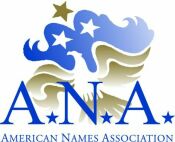
Letter to the Editor of BestWeek/BestWire

September 26, 2003
Ms. Caroline Saucer, Editor
BestWeek Publications
Re: Letter to the Editor concerning BestWeek’s September 23, 2003 David Pilla article "Lloyd’s CEO Calls for Industry ‘Transformation"
Dear Ms. Saucer:
Once again, David Pilla has reported verbatim, statements made by a Lloyd’s executive as though they were true when in fact they are inaccurate. Had Mr. Pilla done some elementary research of articles previously published by A.M. Best and other recognized publications, he would have realized that many of the statements made by Lloyd’s CEO Nick Prettejohn at the recent annual conference of the Chartered Insurance Institute were inaccurate and misleading. ANA is at a loss as to why BestWeek’s fact-verification standards appear to be so lax when it comes to Lloyds. Instead of reporting the news about Lloyd’s, Mr. Pilla’s article is best characterized as a PR piece.
Had Mr. Pilla investigated Prettejohn’s statement; "We have changed from being a self-regulated market to being regulated by the Financial Services Authority," here’s what he would have easily discovered. The "Financial Services and Market Act, 2000" (www.hmso.gov.uk/acts/), describes the FSA’s functions as follows:
"Section 314 (1) The Authority ("FSA") must keep itself informed (emphasis added) about (a) the way in which the Council supervises and regulates the market at Lloyd’s; and (b) the way in which regulated activities are being carried on in that market."
The truth is, Lloyd’s continues to be self-regulated under the 1982 Lloyd’s Act of Parliament. The FSA does not regulate Lloyd’s, it simply keeps itself informed about Lloyd’s. By attempting to obscure this fact, Lloyd’s executives have successfully used your publication to promote the perception that Lloyd’s syndicates are supervised by the FSA. This is particularly significant given Lloyd’s intense lobbying of U.S. insurance regulators to convince them to lower the amounts Lloyd’s underwriters must maintain in its surplus lines and reinsurance U.S. trust funds.
Letter to Editor, Caroline Saucer / BestWeek Publications
Page two / 09-26-03
Mr. Pilla also failed to point out that Mr. Prettejohn’s call for "The global insurance industry...to take urgent action to transform itself if is to have a profitable future" assumes that its competitors have the ability to make changes similar to those undertaken by Lloyd’s. In stark contrast to Lloyd’s, competing insurance carriers cannot readily move their accumulated policyholder liabilities into a separate entity with a fixed amount of capital (such as Equitas) and then continue to trade forward under the same name and licenses.
When Mr. Pilla reported Mr. Prettejohn’s description of Lloyd’s "franchise concept", he failed to report that the Franchise Agreement does not include any statement obligating Lloyd’s or its franchisees to pay pre-franchise-era losses should they exceed existing reserves. Lloyd’s has refused to confirm that the "New, New" Central Fund will stand behind policies written during the period 1993 through 2004. Mr. Pilla should have at least mentioned the impact that Lloyd’s change from a "market" to a "franchiser" will have upon the security afforded to U.S. policyholders and reinsureds.
And, Mr. Pilla not only failed to correct Mr. Prettejohn’s inaccurate recollections of some of the structural changes Lloyd’s has made over the past ten years, he failed to see the irony in Lloyd’s "call-to-arms...to push market discipline." Prettejohn’s statement that Lloyd’s "...launched Equitas in 1996...then changed from a market backed wholly by private capital to one with more diverse capital backing..." is far from the truth. In fact, Lloyd’s restructured its capital base in 1993, almost three years before launching Equitas in 1996. Lloyd’s first allowed corporate limited liability members to underwrite in 1994. Lloyd’s spokesmen’s lack of credibility is compounded when they admonish others about "disciplined underwriting" when it lost $13+ billion during its 1988 through 1992 years of account and, following the formation of Equitas, $12 billion more during 1997 through 2001.
In the interest of fair and balanced reporting, ANA encourages you to make certain that your reporters and editors have carefully scrutinized representations made by Lloyd’s. When articles are "spun" such as Mr. Pilla’s, you not only undermine the credibility of your otherwise fine publication, you do a disservice to your readers. Lloyd’s U.S. policyholders and ceding insurers, as well as state insurance regulators have far too much at stake for you to fail to accurately report the facts.
Very truly yours,
J.F. "Jack" Shettle, Sr.
Chairman
PS -- We invite you to visit our website (www.truthaboutlloyds.com)
Reports - | - Contact Truth About Lloyd's